Video Recordings Available For Purchase
June 2, 2015
Plus: Optional Intensive Workshops on June 3
Frances C. Arrillaga Alumni Center
326 Galvez St.
Stanford, CA USA
#dataonpurpose
Quick Links
Conference Overview | Agenda | Sessions | Video Recording For Sale | June 3 Intensive Workshops | Confirmed Speakers | Rates and Registration | Conference Facility and Location | Lodging | Sponsors | Privacy Policy | Cancellation Policy | Contact Information
Conference Overview
Using data for social change is one of the greatest challenges and opportunities facing the social sector. Join Stanford Social Innovation Review and data experts from government, nonprofit, business, and academia at Stanford University for a discussion about the growing proliferation of data in the nonprofit sector and our increasing ability to make productive use of it, guard it, and share it.
Who should attend Data on Purpose? Anyone who wants to learn more about using data effectively, strategically, and securely within their organization—not just technology officers!
You will learn about:
- Key considerations for collecting and using data including safety, security, ethics, and effectiveness
- Using data science for social good
- Creating and structuring policies and procedures around data and propagating them throughout your organization
- Evaluating outcomes with data
- Capacity building with data
June 2 Agenda
Didn't expect to learn a new pop culture term in the first few min of a data conference #dataonfleek @nancylublin @SSIReview #dataonpurpose
— Matt Scharpnick (@mattscharp) June 2, 2015
#dataonpurpose "It is about what works, not what has always worked" when it comes to using data to improve results @nancylublin
— Beth Kanter (@kanter) June 2, 2015
"Data mining has the potential to dramatically change how the social sector works"; transformation is happening @meansandrew #dataonpurpose
— Monte Desai (@MonteDesai) June 2, 2015
"The idea of using tech, tools, and data to address social issues has reached the highest levels of government" @latonero #dataonpurpose
— Matt Stempeck (@mstem) June 2, 2015
"Risks, harms & benefits calculus for social sector is different than for private sector" @latonero #dataonpurpose pic.twitter.com/9tAogw3Kwk
— Global Pulse (@UNGlobalPulse) June 2, 2015
Great questions from everyone in open data workshop. With smart energetic people like this engaged, future is bright. #dataonpurpose
— Sara Davis (@SaraLeeeDeee) June 3, 2015
June 2 Sessions
Tip: Click on the presentation titles to access the presentation slides.
Opening Keynote: Using Data to Create Social Change
Nancy Lublin
The opening keynote is by a nonprofit practitioner who has built a leading organization that puts data at the center of its work. In an inspirational and informative speech, this social change leader will share how she mobilized her organization around data, the mistakes she has made, the lessons she has learned, and how she believes that data can be a powerful force for social good!
Second Keynote: How to Create a Data-Driven Organization
Jim Fruchterman
How can data help nonprofit organizations tackle difficult and dynamic social issues in exemplary new ways? How do data applications help the social sector do its work better? What are some of the key considerations organizations must contemplate as they begin to use data to improve their work? In the second keynote an award-winning social entrepreneur and technology expert will answer these questions and lead participants through a nuts and bolts session to help them identify strategic areas where data can be used in their organization, better manage and protect their data, effectively make use of their data, and create a data-driven organization.
Panel: Should Your Data be Open or Closed?
Lucy Bernholz, Brad Presner, Matt Stempeck, & Anoush Tatevossian
This session will explore and discuss a fundamental question that every organization must ask itself, what data should be kept private and what data should be made open and available to others. Participants will walk away with an understanding of the key questions an organization must ask itself in regards to choosing open or closed system, the risks and upsides of opening or closing data, and ways their organization can tap into public sources of open data and free data tools.
Case Study: A Higher Sense of Purpose with Data
Neal Myrick & Lynzi Ziegenhagen
In this case study, participants will learn how a nonprofit used sensitive and complex data to create accountability, leadership, and capacity building with incredible results!
Panel: Data Mining for Social Impact
Andrew Means, Rob Acker, Devid Henderson, & Mark Latonero
This session will focus on data mining considerations including classification, prediction, and other techniques that allow organizations to efficiently measure the impact of their interventions and programs in a meaningful way. Participants will also learn how data mining can help optimize their work by focusing on evidence-based resource allocation and on efforts that lead to better outcomes. After this session participants will have a solid understanding of the hows and whys of data mining and be able to make the case for heavier investment into data mining capabilities within their organization.
Panel: Using Data Visualization to Change the Conversation
Jake Porway, Michael Green, Rahul Bhargava, Matthew Scharpnick, & Kim Rees
One of the most compelling ways to tell a story is by representing complex data sets via data visualization. In this session participants will learn about data visualization practices including mapping, geographic data, clustering techniques, and special correlations. This panel of data visualization experts will compel participants to think about how they can use data visualization for assessing impact, fundraising, social media, and featuring outcomes. Panelists will also learn how to meaningfully incorporate data visualization into their work with constrained budgets.
Closing Keynote: APIs for Good: A Bestiary of the Networked World
Dylan Henricks
Now what? How do I begin to use data to make my organization more effective, and how can I share this information within my organization? In the closing keynote an expert data analyst will help participants think about the key conference take-aways, lessons learned, and what steps to take next.
Video Recordings For Sale
Missed Data on Purpose? The video recording of June 2 sessions from Data on Purpose is now available for $99.00. Click here to learn more.
June 3 Intensive Workshops
Tip: Click on the presentation titles to access the presentation slides.
Join Stanford Social Innovation Review and experts for a second day of workshop sessions that will dive deeper into bringing data into practice. Pre-registration is required and must be purchased during your online registration. Please note that you must attend the June 2 plenary in order to be eligible to attend workshop intensives.
Morning Session Options: A Framework for Data Architecture OR Tapping Into Open Data
Date: Wednesday, June 3
Time: 9:00 a.m. - 12:30 p.m.
Data Architecture: Frameworks for Data Storage and Use: Every organization that wants to use data for social change needs to have a thoughtful policy for managing and structuring the data it collects and how it will be used. Without those policies organizations can waste valuable time and resources, be unable to effectively pursue their mission, or even suffer dramatic breaches of both security and trust. In this workshop attendees will start off learning about the importance of data management architectures and how to begin creating policies and structures that are tailored to their organization’s needs and capabilities. Attendees will then move into a discussion of frameworks that guide appropriate organization-wide data-use, ensuring data-driven communications efforts are in line with their goals. This hands-on workshop will help attendees understand the organizational frameworks needed to bring their teams together around data to have fun and create impact
Tapping into Open Data: Most organizations protect their data behind firewalls, often for good reason. But there is a growing amount of data that is being made freely available for others to use to benefit society. Governments, nonprofits, scientific organizations, and even businesses are beginning to make some of their data open and accessible to all. In this workshop attendees will identify the varied sources of open data, how other organizations are using open data, and ways to use open data to further their own organization’s work.
A boxed lunch with be provided for workshop participants.
Afternoon Session Options: Data Visualization and Maps OR A Roadmap for Opening Up Data
Date: Wednesday, June 3
Time: 1:30 p.m. - 5:00 p.m.
Data Visualization and Maps: One of the most powerful ways to visualize data is to overlay it onto maps. Environmentalists are taking abstract data about global warming and overlaying it on maps to show how rising oceans will flood coastal cities around the world. Human rights activists are using satellite images to show how once-thriving villages are now destroyed. In this workshop attendees will learn how to combine their own data with satellite images and maps from companies like Google, and display that information in ways that drive social change.
A Roadmap for Opening Up Data: One of the most valuable assets that many organizations have is their data. And one of the most important ways that organizations can create positive social change is to make some of their data open and share it with others. But creating open data isn’t easy. Personal privacy must be protected, data integrity must be insured, and the data needs to be presented in a form that others can use. This workshop will offer a roadmap and provide practical steps for organizations that want to open up their data.
Speaker Bios
Rob Acker, CEO, Salesforce.org
Twitter: @SFDCFoundation
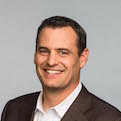 Rob Acker is the CEO of Salesforce.org. At Salesforce.org, Acker is focused on delivering world-class technology to nonprofits and higher education customers. Acker has been with Salesforce for 15 years and prior to leading Salesforce.org, he served as a senior vice president of sales. Before joining Salesforce, Acker worked in application sales at Oracle. Acker holds a bachelor’s degree in political science and economics from Gonzaga University.
Rob Acker is the CEO of Salesforce.org. At Salesforce.org, Acker is focused on delivering world-class technology to nonprofits and higher education customers. Acker has been with Salesforce for 15 years and prior to leading Salesforce.org, he served as a senior vice president of sales. Before joining Salesforce, Acker worked in application sales at Oracle. Acker holds a bachelor’s degree in political science and economics from Gonzaga University.
Jos Berens, project coordinator, Data Governance Project
Twitter: @Jos_Berens/@UniLeiden
 Jos Berens is the project coordinator of the Data Governance Project (DGP), an international multidisciplinary collaboration between the Governance Lab, the World Economic Forum, and Leiden University. The collaboration focuses on building an expert network to solve questions regarding corporate data sharing for social good, particularly in a development context. Working with a number of international organizations, the DGP looks at concrete governance issues in the data for development space. Based on the solutions found, the DGP is developing a framework for corporate data sharing for social good. Berens holds bachelor’s degrees in Dutch law and in philosophy of a specific discipline, both obtained at Groningen University. He is currently pursuing a master’s degree in Dutch criminal law at Groningen and a master’s degree in public international law at Utrecht University. Berens specializes in privacy, data ethics and benefit/risk assessment regarding data collection and use.
Jos Berens is the project coordinator of the Data Governance Project (DGP), an international multidisciplinary collaboration between the Governance Lab, the World Economic Forum, and Leiden University. The collaboration focuses on building an expert network to solve questions regarding corporate data sharing for social good, particularly in a development context. Working with a number of international organizations, the DGP looks at concrete governance issues in the data for development space. Based on the solutions found, the DGP is developing a framework for corporate data sharing for social good. Berens holds bachelor’s degrees in Dutch law and in philosophy of a specific discipline, both obtained at Groningen University. He is currently pursuing a master’s degree in Dutch criminal law at Groningen and a master’s degree in public international law at Utrecht University. Berens specializes in privacy, data ethics and benefit/risk assessment regarding data collection and use.
Lucy Bernholz, visiting scholar, Center on Philanthropy and Civil Society, Stanford University; co-leader, Digital Civil Society Lab
Twitter: @p2173
 Lucy Bernholz is a philanthropy wonk trying to understand how we create, fund, and distribute shared social goods in the digital age—what she calls the future of good. She writes extensively on philanthropy, technology, information, and policy on her blog, philanthropy2173.com. Bernholz is a visiting scholar at the Stanford University Center on Philanthropy and Civil Society, where she is helping to launch the Digital Civil Society Lab. She is also a visiting scholar at The David and Lucile Packard Foundation, where she is writing a book while also working with Foundation colleagues to think about foundations in the digital age.
Lucy Bernholz is a philanthropy wonk trying to understand how we create, fund, and distribute shared social goods in the digital age—what she calls the future of good. She writes extensively on philanthropy, technology, information, and policy on her blog, philanthropy2173.com. Bernholz is a visiting scholar at the Stanford University Center on Philanthropy and Civil Society, where she is helping to launch the Digital Civil Society Lab. She is also a visiting scholar at The David and Lucile Packard Foundation, where she is writing a book while also working with Foundation colleagues to think about foundations in the digital age.
Rahul Bhargava, research scientist, MIT Center for Civic Media
Twitter: @rahulbot/@CivicMIT
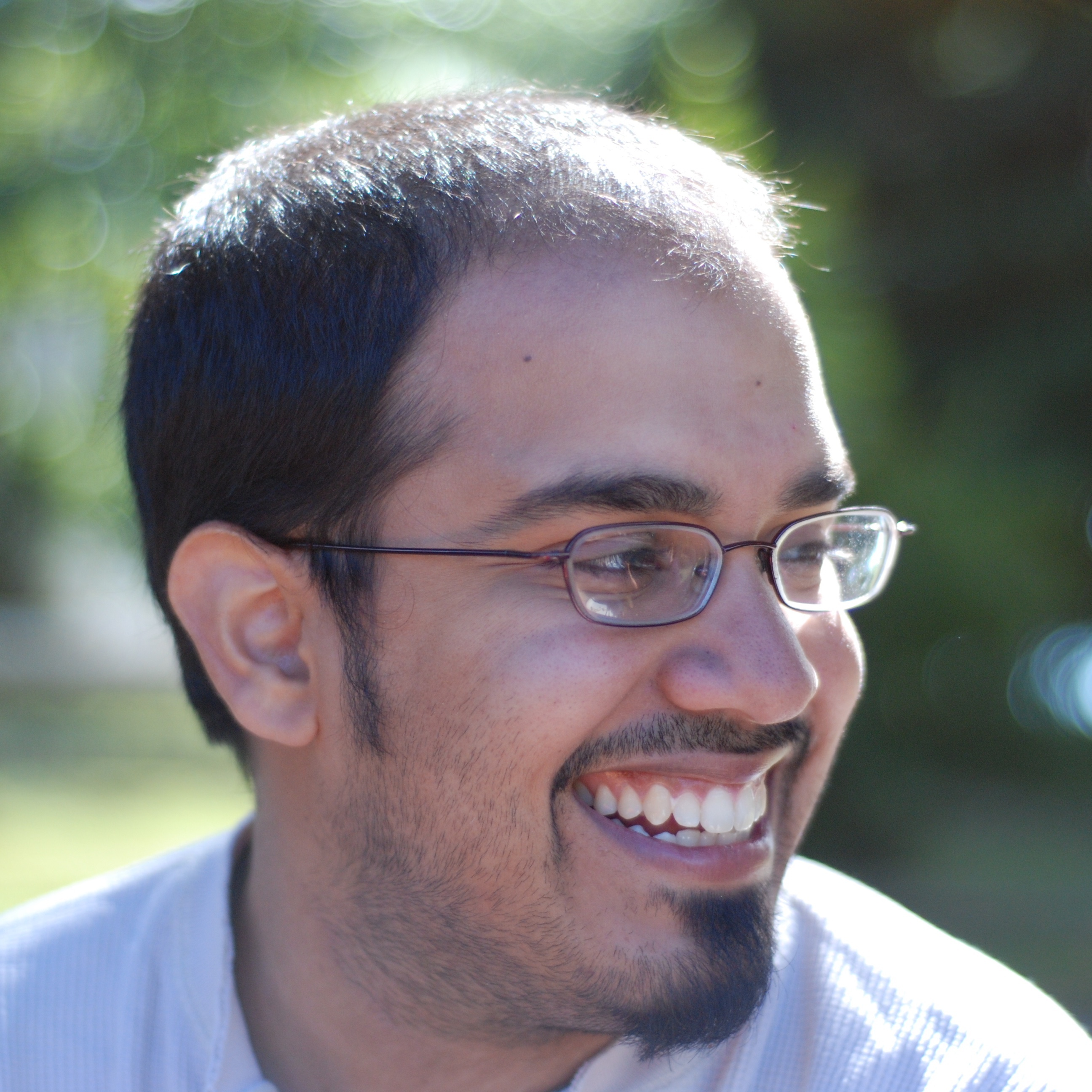 Rahul Bhargava leads hands-on data workshops around the world. In his current role as research scientist at the MIT Center for Civic Media, he manages development and outreach for a number of participatory data projects. His Data Therapy workshops have been bringing people together around data with engaging activities for over 10 years. Bhargava combines a background in interactive robotics, popular education, and effective data presentation to build creative and playful activities that introduce data literacy in appropriate ways to a variety of audiences. He is a technologist, educator, and father based in Somerville, Mass.
Rahul Bhargava leads hands-on data workshops around the world. In his current role as research scientist at the MIT Center for Civic Media, he manages development and outreach for a number of participatory data projects. His Data Therapy workshops have been bringing people together around data with engaging activities for over 10 years. Bhargava combines a background in interactive robotics, popular education, and effective data presentation to build creative and playful activities that introduce data literacy in appropriate ways to a variety of audiences. He is a technologist, educator, and father based in Somerville, Mass.
Janet Camarena, director of transparency initiatives, Foundation Center
Twitter: @glasspockets
 Janet Camarena serves as the director of transparency initiatives for Foundation Center, working to champion greater foundation transparency. A key part of her responsibilities include providing leadership to Glasspockets.org, which she helped to create and found inside Foundation Center five years ago, and which provides foundations with a variety of tools and features designed to encourage greater philanthropic openness. Prior to taking on this role, Camarena served as director of Foundation Center’s regional office in San Francisco for 15 years. She completed her undergraduate work at Mills College and received a master’s degree in library and information science from San Jose State University. She serves on the board of the Alameda County Library Foundation and volunteers teaching art and art history at her son’s elementary school.
Janet Camarena serves as the director of transparency initiatives for Foundation Center, working to champion greater foundation transparency. A key part of her responsibilities include providing leadership to Glasspockets.org, which she helped to create and found inside Foundation Center five years ago, and which provides foundations with a variety of tools and features designed to encourage greater philanthropic openness. Prior to taking on this role, Camarena served as director of Foundation Center’s regional office in San Francisco for 15 years. She completed her undergraduate work at Mills College and received a master’s degree in library and information science from San Jose State University. She serves on the board of the Alameda County Library Foundation and volunteers teaching art and art history at her son’s elementary school.
Caroline Danielson, senior fellow, Public Policy Institute of California
Twitter: @PPICnotes
 Caroline Danielson is a senior fellow at the Public Policy Institute of California. Her research focuses on multiple dimensions of the social safety net, including its role in mitigating poverty, program access and enrollment, and the integration and governance of programs. Her work has been published in numerous academic journals, including the Journal of Policy Analysis and the Social Service Review. Before coming to PPIC, she was a principal analyst at the University of California's Welfare Policy Research Project and a faculty member in the Department of Politics at the State University of New York, Potsdam. She holds a doctorate in political science from the University of Michigan and a master’s degree in policy analysis from the Pardee RAND graduate school.
Caroline Danielson is a senior fellow at the Public Policy Institute of California. Her research focuses on multiple dimensions of the social safety net, including its role in mitigating poverty, program access and enrollment, and the integration and governance of programs. Her work has been published in numerous academic journals, including the Journal of Policy Analysis and the Social Service Review. Before coming to PPIC, she was a principal analyst at the University of California's Welfare Policy Research Project and a faculty member in the Department of Politics at the State University of New York, Potsdam. She holds a doctorate in political science from the University of Michigan and a master’s degree in policy analysis from the Pardee RAND graduate school.
Sara Davis, director of grants management, William and Flora Hewlett Foundation
Twitter: @saraleeedeee/@Hewlett_Found
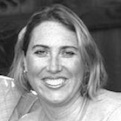 Sara Davis joined The William and Flora Hewlett Foundation in 2011 as the director of the grants management department. In this role, she is responsible for ensuring that grantmaking operations, systems and data support the mission and strategic goals of the Foundation. She currently serves on the boards of directors for the Northern California Grantmakers Association and the Grants Managers Network. Davis came to Hewlett from the Adobe Foundation, where she managed foundation finance, operations, and their global grants programs. Her previous work experience includes leadership positions in philanthropy and the nonprofit sector with Kaiser Permanente Northern California Community Benefit programs and with the Napa Valley Vintners Association. Sara has an master’s in business administration from the University of Pennsylvania’s Wharton School of Business, and completed the philanthropy leadership program at Stanford University’s school of social innovation.
Sara Davis joined The William and Flora Hewlett Foundation in 2011 as the director of the grants management department. In this role, she is responsible for ensuring that grantmaking operations, systems and data support the mission and strategic goals of the Foundation. She currently serves on the boards of directors for the Northern California Grantmakers Association and the Grants Managers Network. Davis came to Hewlett from the Adobe Foundation, where she managed foundation finance, operations, and their global grants programs. Her previous work experience includes leadership positions in philanthropy and the nonprofit sector with Kaiser Permanente Northern California Community Benefit programs and with the Napa Valley Vintners Association. Sara has an master’s in business administration from the University of Pennsylvania’s Wharton School of Business, and completed the philanthropy leadership program at Stanford University’s school of social innovation.
Regan Foust, senior manager, data and research, programs and partnerships, Lucile Packard Foundation for Children’s Health
Twitter: @kidsdata
 Regan Foust joined the Lucile Packard Foundation for Children's Health in 2011. Through her management of www.kidsdata.org and advocacy for open data, she connects those working with and on behalf of children to the high-quality, wide-ranging, and local data they need to make data-informed decisions. Prior to joining the Foundation, she worked to bridge the gap between research and practice in the social sciences at a research and development firm, and to evaluate and improve programs at a child welfare agency. Foust holds a doctorate in educational psychology from the University of Virginia and a bachelor’s degree in psychology from University of California, Davis.
Regan Foust joined the Lucile Packard Foundation for Children's Health in 2011. Through her management of www.kidsdata.org and advocacy for open data, she connects those working with and on behalf of children to the high-quality, wide-ranging, and local data they need to make data-informed decisions. Prior to joining the Foundation, she worked to bridge the gap between research and practice in the social sciences at a research and development firm, and to evaluate and improve programs at a child welfare agency. Foust holds a doctorate in educational psychology from the University of Virginia and a bachelor’s degree in psychology from University of California, Davis.
Jim Fruchterman, founder and CEO, Benetech
Twitter: @JimFruchterman/@Benetech
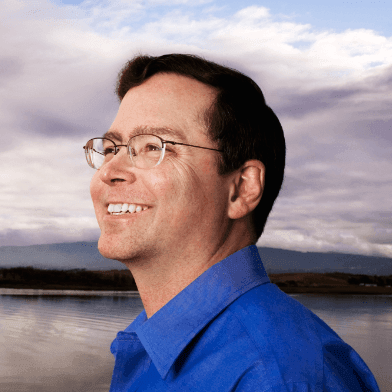 Jim Fruchterman is the founder and CEO of Benetech, a Silicon Valley nonprofit technology company that develops software applications to address unmet needs of users in the social sector. He is the recipient of numerous awards recognizing his work as a pioneering social entrepreneur, including the MacArthur Fellowship, Caltech’s Distinguished Alumni Award, and the Skoll Award for Social Entrepreneurship. Since its founding in 1989, Benetech has touched the lives of hundreds of thousands of people. Its tools and services have transformed the ways in which people with disabilities access printed information, at-risk human rights defenders safely document abuse, and environmental practitioners succeed in their efforts to protect species and ecosystems. Through his work, Fruchterman continues to advance his vision of a world in which the benefits of technology reach all of humanity, not just the wealthiest and most able five percent.
Jim Fruchterman is the founder and CEO of Benetech, a Silicon Valley nonprofit technology company that develops software applications to address unmet needs of users in the social sector. He is the recipient of numerous awards recognizing his work as a pioneering social entrepreneur, including the MacArthur Fellowship, Caltech’s Distinguished Alumni Award, and the Skoll Award for Social Entrepreneurship. Since its founding in 1989, Benetech has touched the lives of hundreds of thousands of people. Its tools and services have transformed the ways in which people with disabilities access printed information, at-risk human rights defenders safely document abuse, and environmental practitioners succeed in their efforts to protect species and ecosystems. Through his work, Fruchterman continues to advance his vision of a world in which the benefits of technology reach all of humanity, not just the wealthiest and most able five percent.
Hunter Goldman, program associate, Rockefeller Foundation
Twitter: @huntergoldman/@rockefellerfdn
 As a program associate at the Rockefeller Foundation, Hunter Goldman manages relationships with current and prospective grantees throughout the grantmaking process, coordinates Foundation work with partners, and conducts research in support of the strategic development and execution of Foundation initiatives. He manages a portfolio within the Foundation’s Innovation team, specifically focusing on the application of innovative technology solutions for social impact. Prior to joining the Foundation, Goldman served in the administration of former New York City Mayor Michael Bloomberg at the New York City Economic Development Corporation, guiding land-use projects through the official public approval process. He holds dual bachelor of arts degrees from New York University in metropolitan studies and urban design.
As a program associate at the Rockefeller Foundation, Hunter Goldman manages relationships with current and prospective grantees throughout the grantmaking process, coordinates Foundation work with partners, and conducts research in support of the strategic development and execution of Foundation initiatives. He manages a portfolio within the Foundation’s Innovation team, specifically focusing on the application of innovative technology solutions for social impact. Prior to joining the Foundation, Goldman served in the administration of former New York City Mayor Michael Bloomberg at the New York City Economic Development Corporation, guiding land-use projects through the official public approval process. He holds dual bachelor of arts degrees from New York University in metropolitan studies and urban design.
Marina Gorbis, executive director, Institute for the Future
Twitter: @mgorbis/@iftf
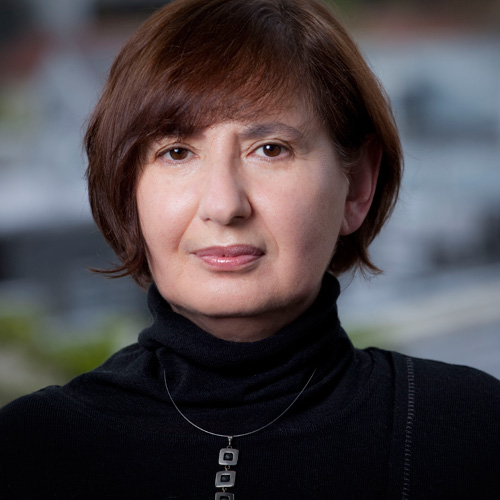 Marina Gorbis is a futurist and social scientist who serves as executive director to the Institute for the Future (IFTF), a Silicon Valley nonprofit research and consulting organization. In her 17 years with IFTF, Marina has brought a futures perspective to hundreds of organizations in business, education, government and philanthropy to improve innovation capacity, develop strategies, and design new products and services. Marina’s current research focuses on how social production is changing the face of major industries, a topic explored in detail in her book, The Nature of the Future: Dispatches from the Socialstructed World. She has keynoted such international events as The Next Web Conference, NEXT Berlin, the World Business Forum, the National Association of Broadcasters annual convention, and the Western Association of Schools and Colleges annual conference. She holds a BA in psychology and a master’s of public policy from UC Berkeley.
Marina Gorbis is a futurist and social scientist who serves as executive director to the Institute for the Future (IFTF), a Silicon Valley nonprofit research and consulting organization. In her 17 years with IFTF, Marina has brought a futures perspective to hundreds of organizations in business, education, government and philanthropy to improve innovation capacity, develop strategies, and design new products and services. Marina’s current research focuses on how social production is changing the face of major industries, a topic explored in detail in her book, The Nature of the Future: Dispatches from the Socialstructed World. She has keynoted such international events as The Next Web Conference, NEXT Berlin, the World Business Forum, the National Association of Broadcasters annual convention, and the Western Association of Schools and Colleges annual conference. She holds a BA in psychology and a master’s of public policy from UC Berkeley.
Michael Green, executive director, Social Progress Imperative
Twitter: @shepleygreen/@socprogress
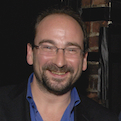 Michael Green is executive director of the Social Progress Imperative. An economist by training, he is coauthor (with Matthew Bishop of 'The Economist') of Philanthrocapitalism: How Giving Can Save the World and The Road from Ruin: A New Capitalism for a Big Society. Previously Green served as a senior official in the U.K. Government's Department for International Development, where he managed British aid programs to Russia and Ukraine and headed the communications department. He taught economics at Warsaw University in Poland in the early 1990s.
Michael Green is executive director of the Social Progress Imperative. An economist by training, he is coauthor (with Matthew Bishop of 'The Economist') of Philanthrocapitalism: How Giving Can Save the World and The Road from Ruin: A New Capitalism for a Big Society. Previously Green served as a senior official in the U.K. Government's Department for International Development, where he managed British aid programs to Russia and Ukraine and headed the communications department. He taught economics at Warsaw University in Poland in the early 1990s.
David Henderson, director of analytics, Family Independence Initiative
Twitter: @david_henderson/@fiinational
 David Henderson joined FII in 2014 after running a data analytics and technology company for over eight years that built outcomes management solutions for social sector organizations. Henderson’s professional focus is on improving the way social sector organizations utilize information to make high impact decisions. After more than a decade working in and with human service organizations, Henderson is especially interested in exploring the effectiveness of investing directly in low-income communities. Henderson holds a master's degree in public policy and management from Carnegie Mellon University and a bachelor's degree in politics from Pomona College.
David Henderson joined FII in 2014 after running a data analytics and technology company for over eight years that built outcomes management solutions for social sector organizations. Henderson’s professional focus is on improving the way social sector organizations utilize information to make high impact decisions. After more than a decade working in and with human service organizations, Henderson is especially interested in exploring the effectiveness of investing directly in low-income communities. Henderson holds a master's degree in public policy and management from Carnegie Mellon University and a bachelor's degree in politics from Pomona College.
Mark Latonero, fellow, Data & Society; research director, USC Annenberg Center on Communication Leadership & Policy
Twitter: @latonero/@datasociety
 Mark Latonero is a fellow at Data & Society, a new NYC-based research institute focused on the social, ethical, and policy implications of data-centric technologies. He investigates the intersection between data, human security, and human rights. Of particular concern are the complexities that arise when “big data” approaches are used in social interventions involving vulnerable populations. Latonero is also a research professor at the University of Southern California where he leads the Center on Communication Leadership & Policy's Technology and Human Trafficking Initiative. Latonero completed his doctorate at the USC Annenberg School and was a postdoctoral research scholar at the London School of Economics.
Mark Latonero is a fellow at Data & Society, a new NYC-based research institute focused on the social, ethical, and policy implications of data-centric technologies. He investigates the intersection between data, human security, and human rights. Of particular concern are the complexities that arise when “big data” approaches are used in social interventions involving vulnerable populations. Latonero is also a research professor at the University of Southern California where he leads the Center on Communication Leadership & Policy's Technology and Human Trafficking Initiative. Latonero completed his doctorate at the USC Annenberg School and was a postdoctoral research scholar at the London School of Economics.
Nancy Lublin, founder and CEO, Crisis Text Line
Twitter: @nancylublin/@CrisisTextLine
 As former CEO of DoSomething.org, the largest organization for teens and social change in the world, Nancy Lublin is able to name all five members of One Direction without a smidge of sarcasm. An expert on youth, social media, and pop culture, brands like Pepsi and Chase and several tech start-ups have sought her advice and Fast Company has named her to their Most Creative People list. In 2013, while still CEO of DoSomething.org, Lublin turned her popular TED talk into her third company, Crisis Text Line (CTL). CTL is the first 24/7, free, nationwide text line for teens. Prior to leading CTL, Lublin turned a $5,000 inheritance into Dress for Success, which helps women transition from welfare to work in more than 125 cities in 15 countries. She studied politics at Brown University, political theory at Oxford University (as a Marshall Scholar), and has a law degree from New York University. She is the author of the best-selling business book Zilch: The Power of Zero in Business and is one of the top 50 Influencers on LinkedIn.
As former CEO of DoSomething.org, the largest organization for teens and social change in the world, Nancy Lublin is able to name all five members of One Direction without a smidge of sarcasm. An expert on youth, social media, and pop culture, brands like Pepsi and Chase and several tech start-ups have sought her advice and Fast Company has named her to their Most Creative People list. In 2013, while still CEO of DoSomething.org, Lublin turned her popular TED talk into her third company, Crisis Text Line (CTL). CTL is the first 24/7, free, nationwide text line for teens. Prior to leading CTL, Lublin turned a $5,000 inheritance into Dress for Success, which helps women transition from welfare to work in more than 125 cities in 15 countries. She studied politics at Brown University, political theory at Oxford University (as a Marshall Scholar), and has a law degree from New York University. She is the author of the best-selling business book Zilch: The Power of Zero in Business and is one of the top 50 Influencers on LinkedIn.
Andrew Means, cofounder, The Impact Lab; associate director, Center for Data Science & Public Policy, University of Chicago
Twitter: @meansandrew
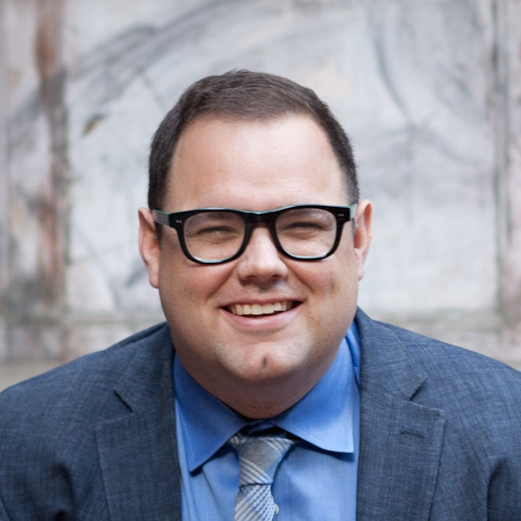 Andrew Means is cofounder of The Impact Lab, a data science shop that works with nonprofits, foundations, and government agencies on solving social problems. He has previously held leadership positions at The University of Chicago’s Center for Data Science & Public Policy, Groupon, and the YMCA of Metropolitan Chicago. He holds a master’s degree in public policy from the Harris School at the University of Chicago and is a trained Six Sigma Green Belt from Motorola. Means is chairman of the board of directors at The Supply and a member of the board of directors at Ingenuity Inc.
Andrew Means is cofounder of The Impact Lab, a data science shop that works with nonprofits, foundations, and government agencies on solving social problems. He has previously held leadership positions at The University of Chicago’s Center for Data Science & Public Policy, Groupon, and the YMCA of Metropolitan Chicago. He holds a master’s degree in public policy from the Harris School at the University of Chicago and is a trained Six Sigma Green Belt from Motorola. Means is chairman of the board of directors at The Supply and a member of the board of directors at Ingenuity Inc.
Neal Myrick, corporate social responsibility director, Tableau Software / Tableau Foundation
Twitter: @NealMyrick
 Neal Myrick is director of corporate social responsibility at Tableau Software, where he leads the company’s efforts in employee service and giving, community impact, and grant making. Within his role, he manages the development of Tableau Foundation. Myrick worked for two software companies, Aldus Corp. (acquired by Adobe) and Visio Corp. (acquired by Microsoft), before becoming managing director of technology at Casey Family Programs, a national foundation focused on foster care with an endowment in excess of two billion dollars. Myrick then became executive director of Groundwire and CEO of Groundwire Consulting, where he helped environmental organizations increase their capacity to engage constituents. Myrick is an active angel investor with Element 8. He has served on nonprofit boards, provides pro bono strategic consulting to nonprofits, and currently focuses his volunteer time on ethical data, diversity and social equity issues.
Neal Myrick is director of corporate social responsibility at Tableau Software, where he leads the company’s efforts in employee service and giving, community impact, and grant making. Within his role, he manages the development of Tableau Foundation. Myrick worked for two software companies, Aldus Corp. (acquired by Adobe) and Visio Corp. (acquired by Microsoft), before becoming managing director of technology at Casey Family Programs, a national foundation focused on foster care with an endowment in excess of two billion dollars. Myrick then became executive director of Groundwire and CEO of Groundwire Consulting, where he helped environmental organizations increase their capacity to engage constituents. Myrick is an active angel investor with Element 8. He has served on nonprofit boards, provides pro bono strategic consulting to nonprofits, and currently focuses his volunteer time on ethical data, diversity and social equity issues.
Jake Porway, founder and executive director, DataKind
Twitter: @jakeporway/@DataKind
 Jake Porway is the founder and executive director of DataKind, a nonprofit that harnesses the power of data science in the service of humanity. He is an alumni of the New York Times R&D Lab, and has worked at Google and Bell Labs. A recognized leader in the data for good movement, he has spoken at IBM, Microsoft, Google, and the White House. He is also a PopTech Social Innovation Fellow and a National Geographic Emerging Explorer. He holds a bachelor’s degree in computer science from Columbia University and a master’s degree and a doctorate in statistics from University of California, Los Angeles.
Jake Porway is the founder and executive director of DataKind, a nonprofit that harnesses the power of data science in the service of humanity. He is an alumni of the New York Times R&D Lab, and has worked at Google and Bell Labs. A recognized leader in the data for good movement, he has spoken at IBM, Microsoft, Google, and the White House. He is also a PopTech Social Innovation Fellow and a National Geographic Emerging Explorer. He holds a bachelor’s degree in computer science from Columbia University and a master’s degree and a doctorate in statistics from University of California, Los Angeles.
Brad Presner, director of analytics, Living Goods
Twitter: @BradPresner/@Living_Goods
 Brad Presner is the director of analytics at Living Goods, a nonprofit that works in community health in East Africa by empowering the poor through networks of ‘Avon-like’ micro-entrepreneurs who go door-to-door teaching families how to improve their health and wealth while selling a broad assortment of affordable, life-changing products. Presner leads Living Goods’ capacity to gather, analyze and utilize information that drives improvement of the organization's operations, as well as manages the development of Android-based mobile health technology that is used by Living Goods' Community Health Providers. Presner joined Living Goods in April 2013, having previously worked at Acumen Fund, where he managed their metrics and impact work across a global portfolio of impact investments. Prior to Acumen, Presner was with Google.org, where he led M&E efforts that built a culture of rigorous and thoughtful analytical impact assessment. Presner holds a bachelor’s degree in mechanical engineering from Stanford University.
Brad Presner is the director of analytics at Living Goods, a nonprofit that works in community health in East Africa by empowering the poor through networks of ‘Avon-like’ micro-entrepreneurs who go door-to-door teaching families how to improve their health and wealth while selling a broad assortment of affordable, life-changing products. Presner leads Living Goods’ capacity to gather, analyze and utilize information that drives improvement of the organization's operations, as well as manages the development of Android-based mobile health technology that is used by Living Goods' Community Health Providers. Presner joined Living Goods in April 2013, having previously worked at Acumen Fund, where he managed their metrics and impact work across a global portfolio of impact investments. Prior to Acumen, Presner was with Google.org, where he led M&E efforts that built a culture of rigorous and thoughtful analytical impact assessment. Presner holds a bachelor’s degree in mechanical engineering from Stanford University.
Kim Rees, head of information visualization, Periscopic
Twitter: @Periscopic
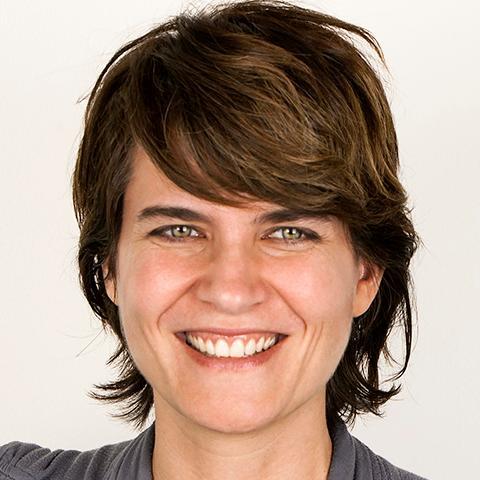 Kim Rees is head of information visualization at Periscopic, and is a prominent individual in the data visualization community. Periscopic is a socially-conscious data visualization firm that helps companies and organizations promote information transparency and public awareness. From endangered species, to sustainability, to human rights, to social justice, it is our goal to use technology to visualize solutions that engage the public and deliver messages of action.
Kim Rees is head of information visualization at Periscopic, and is a prominent individual in the data visualization community. Periscopic is a socially-conscious data visualization firm that helps companies and organizations promote information transparency and public awareness. From endangered species, to sustainability, to human rights, to social justice, it is our goal to use technology to visualize solutions that engage the public and deliver messages of action.
David Sangokoya, research fellow, The Governance Lab
Twitter: @dsango/@TheGovLab
 David Sangokoya is a research fellow at The Governance Lab (GovLab), an action-research center with a mission to improve people’s lives by changing the way we govern. His research at the Lab focuses on the value and impact of open and shared corporate data for public service delivery and international development. Specifically, he manages GovLab's work on data collaboratives: new forms of collaboration in which participants from the public, private and nonprofit sectors exchange data to help solve public problems. Prior to joining GovLab, Sangokoya worked with nonprofits and social enterprises on research related to post-crisis recovery and governance reform in northern Uganda, Liberia, Namibia, Sri Lanka and Vietnam. Sangokoya holds a master's in public administration in international project management and operations from New York University and a bachelor's degree with honors in international relations and African studies from Stanford University.
David Sangokoya is a research fellow at The Governance Lab (GovLab), an action-research center with a mission to improve people’s lives by changing the way we govern. His research at the Lab focuses on the value and impact of open and shared corporate data for public service delivery and international development. Specifically, he manages GovLab's work on data collaboratives: new forms of collaboration in which participants from the public, private and nonprofit sectors exchange data to help solve public problems. Prior to joining GovLab, Sangokoya worked with nonprofits and social enterprises on research related to post-crisis recovery and governance reform in northern Uganda, Liberia, Namibia, Sri Lanka and Vietnam. Sangokoya holds a master's in public administration in international project management and operations from New York University and a bachelor's degree with honors in international relations and African studies from Stanford University.
Matthew Scharpnick, cofounder and chief strategy officer, Elefint Designs
Twitter: @mattscharp/@elefint
 Matthew Scharpnick is the cofounder and chief strategy officer of Elefint Designs, a strategic design studio that works with good causes. Combining strategy with design, Elefint helps nonprofits, NGOs and other social sector organizations tell compelling stories and achieve greater impact. Scharpnick specializes in branding, design strategy, storytelling, and data visualization.
Matthew Scharpnick is the cofounder and chief strategy officer of Elefint Designs, a strategic design studio that works with good causes. Combining strategy with design, Elefint helps nonprofits, NGOs and other social sector organizations tell compelling stories and achieve greater impact. Scharpnick specializes in branding, design strategy, storytelling, and data visualization.
Vanessa Schneider, program manager, Google Earth Outreach
Twitter: @vanessagene/@earthoutreach
 Vanessa Schneider has been with Google for more than four years, most recently as the Geo Media Program Manager, helping journalists around the world tell stories with Google Maps and Google Earth. Before joining Google, Schneider worked at The New York Times, Time Inc., and at New York startup Hot Potato, acquired by Facebook in 2010.
Vanessa Schneider has been with Google for more than four years, most recently as the Geo Media Program Manager, helping journalists around the world tell stories with Google Maps and Google Earth. Before joining Google, Schneider worked at The New York Times, Time Inc., and at New York startup Hot Potato, acquired by Facebook in 2010.
Raleigh Seamster, program manager, Google Earth Outreach
Twitter: @earthoutreach
 Raleigh Seamster supports nonprofits to use Google's mapping tools to visualize their data and tell their stories. In this capacity, she has worked with indigenous communities to map sites of cultural significance, put a spotlight on conservation in Galapagos islands with Street View, assisted a landmine clearance organization in showing the impact of their work, and on many other projects. She has been with the Google Earth Outreach team for 5 years and at Google for almost eight years. Before Google, Seamster served as a U.S. Peace Corps Volunteer in Ukraine, worked in nonprofit program management at American Councils for International Education, and studied cultural anthropology at James Madison University.
Raleigh Seamster supports nonprofits to use Google's mapping tools to visualize their data and tell their stories. In this capacity, she has worked with indigenous communities to map sites of cultural significance, put a spotlight on conservation in Galapagos islands with Street View, assisted a landmine clearance organization in showing the impact of their work, and on many other projects. She has been with the Google Earth Outreach team for 5 years and at Google for almost eight years. Before Google, Seamster served as a U.S. Peace Corps Volunteer in Ukraine, worked in nonprofit program management at American Councils for International Education, and studied cultural anthropology at James Madison University.
Matt Stempeck, director of civic technology, Microsoft
Twitter: @mstem/@MicrosoftNY
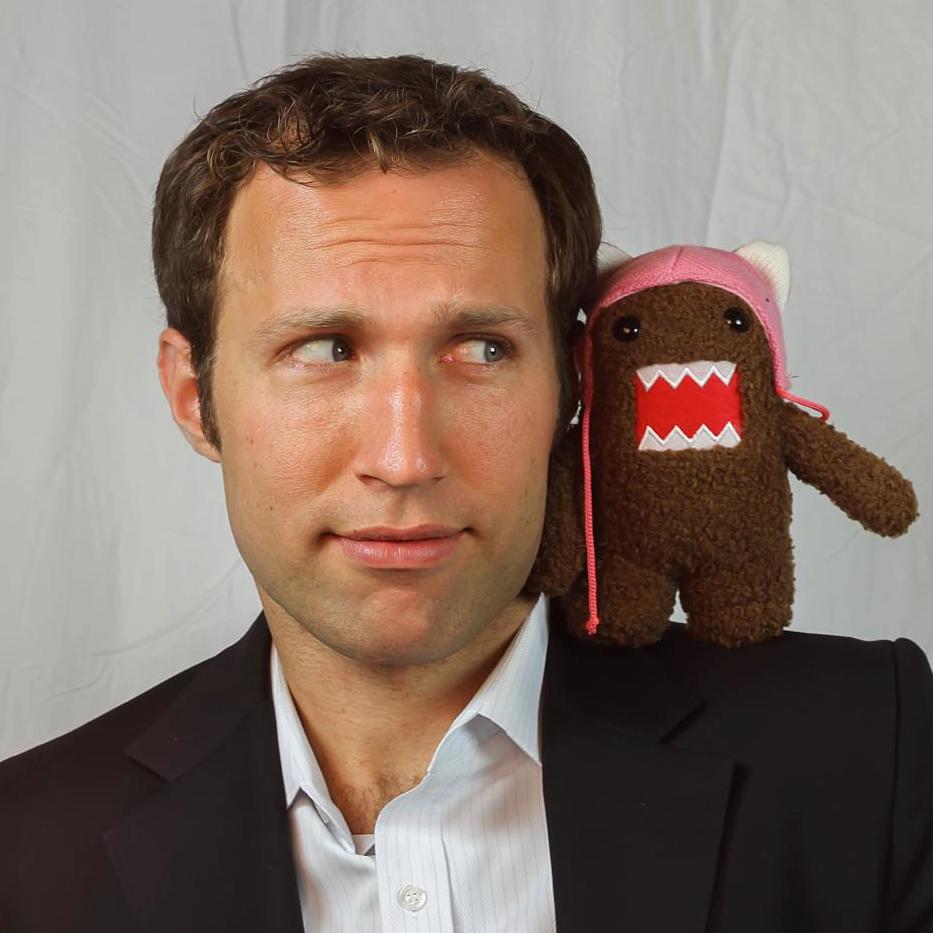 Matt Stempeck is the director of civic technology at Microsoft, where he applies new technologies toward shared problems. Matt has a master's degree from the MIT Media Lab, and a bachelor’s degree in government and politics from the University of Maryland College Park.
Matt Stempeck is the director of civic technology at Microsoft, where he applies new technologies toward shared problems. Matt has a master's degree from the MIT Media Lab, and a bachelor’s degree in government and politics from the University of Maryland College Park.
Anoush Tatevossian, strategic communications and partnerships officer, UN Global Pulse
Twitter: @artate/@UNGlobalPulse
 Anoush Rima Tatevossian leads global strategic partnerships and communications for UN Global Pulse. Global Pulse is an innovation initiative of the UN Secretary-General, which focuses on leveraging the opportunities afforded by big data and real-time analytics for global development and resilience through its network of "Pulse Labs." Previously, she has worked at MobileActive.org - a community of practitioners utilizing mobile technology for development, and as director of the Armenian Volunteer Corps, a grassroots organization in Yerevan, Armenia. She holds a bachelor's degree in government with a concentration in international development from the College of William & Mary, and a master's degree in public diplomacy from the USC Annenberg School.
Anoush Rima Tatevossian leads global strategic partnerships and communications for UN Global Pulse. Global Pulse is an innovation initiative of the UN Secretary-General, which focuses on leveraging the opportunities afforded by big data and real-time analytics for global development and resilience through its network of "Pulse Labs." Previously, she has worked at MobileActive.org - a community of practitioners utilizing mobile technology for development, and as director of the Armenian Volunteer Corps, a grassroots organization in Yerevan, Armenia. She holds a bachelor's degree in government with a concentration in international development from the College of William & Mary, and a master's degree in public diplomacy from the USC Annenberg School.
Lynzi Ziegenhagen, founder and chief executive officer, Schoolzilla; Technology Innovation Team, Aspire Public Schools
Twitter: @lynziziegen
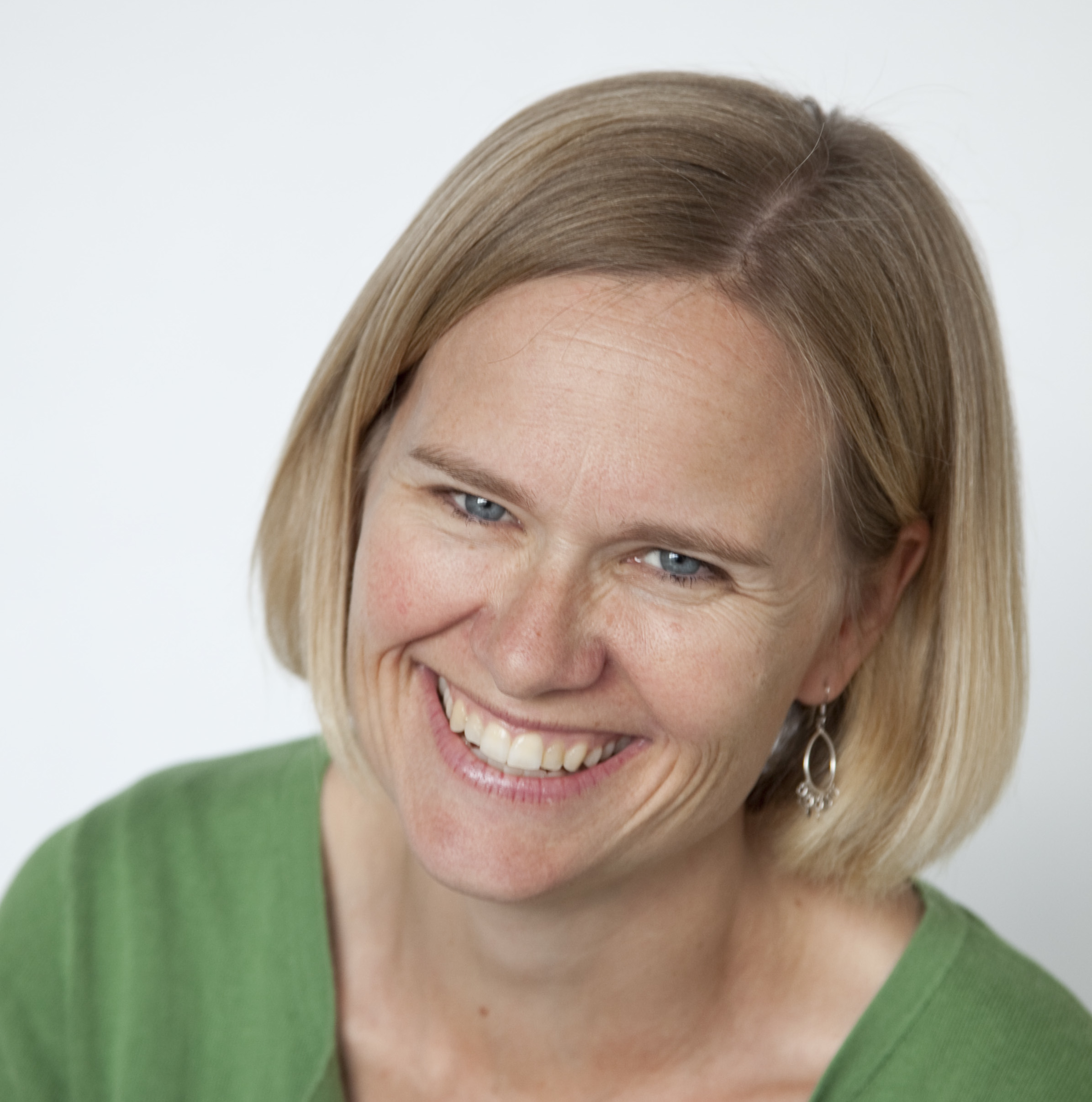 Lynzi Ziegenhagen founded the technology innovation team at Aspire Public Schools in 2008 to ensure that every Aspire teacher, principal, and leader had access to timely, accurate and actionable data. Five years later, she started Schoolzilla to realize an even bigger vision: sharing the same proven data tools with every school in America. Ziegenhagen graduated from Stanford with a degree in symbolic systems and holds a master's degree in computer science from the Naval Postgraduate School. Prior to joining Aspire, she ran her own business creating software for nonprofit organizations, led product management at a start-up, and had stints at Microsoft, Booz Allen and The Children's Partnership.
Lynzi Ziegenhagen founded the technology innovation team at Aspire Public Schools in 2008 to ensure that every Aspire teacher, principal, and leader had access to timely, accurate and actionable data. Five years later, she started Schoolzilla to realize an even bigger vision: sharing the same proven data tools with every school in America. Ziegenhagen graduated from Stanford with a degree in symbolic systems and holds a master's degree in computer science from the Naval Postgraduate School. Prior to joining Aspire, she ran her own business creating software for nonprofit organizations, led product management at a start-up, and had stints at Microsoft, Booz Allen and The Children's Partnership.
Rates and Registration
Regular Rates Rates (Effective April 11 – On-site):
- $550: Plenary on June 2
- $750: Plenary on June 2 + Intensive Workshops on June 3
Conference Facility and Location
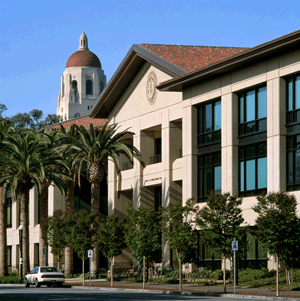 Frances C. Arrillaga Alumni Center
Frances C. Arrillaga Alumni Center
326 Galvez Street
Stanford, CA 94305-6105
The June 2 and 3 program will be held at the Frances C. Arrillaga Alumni Center, a state-of-the-art facility located on Stanford University's campus. More information about the Frances C. Arrillaga Alumni Center, including public transportation, directions, and parking, is available here.
View a Google map of the Stanford campus with the conference venue pinpointed.
Stanford is located between San Francisco and San Jose in the heart of Silicon Valley. The campus's 8,100 acres reach from the rural foothills of the Santa Cruz Mountains to the Stanford Shopping Center in Palo Alto. Stanford is conveniently located between two major airports—25 miles south of San Francisco International Airport and 20 miles north of San Jose International Airport. Mass transit is available from both airports to the Stanford campus and area hotels:
Find information about the free Stanford Marguerite Shuttle here.
Find information about Caltrain here.
Find information about Bay Area Rapid Transit (BART) here.
The campus and surrounding areas offer a myriad of opportunities for recreation and sightseeing. World-class shopping and dining are located only a mile away at the Stanford Shopping Center. A half hour drive north brings you to San Francisco. A two hour drive south brings you to Carmel-by-the-Sea, where you can take in breathtaking views of the Pacific Ocean. To find out more, visit Stanford’s Visitor Information Services.
Lodging
Sheraton Palo Alto
A second room block has been reserved for Data on Purpose attendees at the Sheraton Palo Alto, which is conveniently located across El Camino Real from Stanford University and is next to the Palo Alto Transit Center. Rooms are available June 1-3 at these rates:
- Double-bedded Room: $349 + tax
- King Bed Room: $349 + tax
Book a room at the Sheraton Palo Alto online here, or call (800) 325-3535 and mention "Data on Purpose" to receive the rates given above. These rooms and rates are available until the room block is fully booked or until May 13, whichever comes first. Any reservations received after the cut-off date will be taken on a space-available basis and the group rate will no longer be guaranteed. Sheraton Palo Alto will be undergoing room renovations May 15 through October 31.
Cardinal Hotel
Looking for a hotel close to Stanford's campus while on a budget? A room block has been booked for the Data on Purpose attendees at Cardinal Hotel—a charming, vintage hotel in downtown Palo Alto. If you want to stay here, you'll have to act fast! The room block offers 20 rooms a night, June 1 and June 2, for these room types and rates:
- Standard Room with Private Bath: $249 + tax
- Room with Shared Bath: $139 + tax
Book a room at the Cardinal Hotel online here, or call (650) 323-5101 and mention the promo code "Data" to receive the rates given above.
These rooms and rates are available until the room block is fully booked or until May 1, whichever comes first. After May 1, conference attendees may still book a room using the room block reservation link and receive the rates listed above based on general hotel availability. Find more information about the hotel, including parking options for guests, at www.cardinalhotel.com.
View a list of other nearby lodging with a variety of price ranges. We currently do not have room blocks at these locations.
Sponsors
Produced by:
 Stanford Social Innovation Review (SSIR) is an award-winning magazine and website that covers cross-sector solutions to global problems. SSIR is written for and by social change leaders in the nonprofit, business, and government sectors who view collaboration as key to solving environmental, social, and economic justice issues. Published at the Stanford Center on Philanthropy and Civil Society, SSIR bridges academic theory and practice with ideas about achieving social change. SSIR covers a wide range of subjects, from microfinance and green businesses to social networks and human rights. Its aim is both to inform and to inspire. ssireview.org
Stanford Social Innovation Review (SSIR) is an award-winning magazine and website that covers cross-sector solutions to global problems. SSIR is written for and by social change leaders in the nonprofit, business, and government sectors who view collaboration as key to solving environmental, social, and economic justice issues. Published at the Stanford Center on Philanthropy and Civil Society, SSIR bridges academic theory and practice with ideas about achieving social change. SSIR covers a wide range of subjects, from microfinance and green businesses to social networks and human rights. Its aim is both to inform and to inspire. ssireview.org
Visionary Sponsor:
Impact Sponsors:
Supporting Sponsors:
Interested in becoming a sponsor of this event? Contact Carrie Pogorelc at [email protected] for more information.
Privacy Policy
Stanford Social Innovation Review is committed to your right to privacy and to the ethical use of information online. We adhere strictly to the following privacy practices. We do not rent, sell, give, exchange, or otherwise share contact information with unrelated third parties.
This conference may be audio or video recorded, podcast, photographed, published, and archived. As such, participants and speakers grant SSIR permission for recording and use of images.
Cancellation Policy
A refund charge of twenty percent of the registration fee will be assessed for any cancellations received through May 19, 2015. After May 19, there will be no refunds for cancellation. A registration fee for a program may be transferred to another person one time with no penalty. Refund requests must be submitted in writing and will not be processed until after the event.
Contact Information
Devin Briski
Stanford Social Innovation Review
Email: [email protected]
Phone: (650) 497-7620







